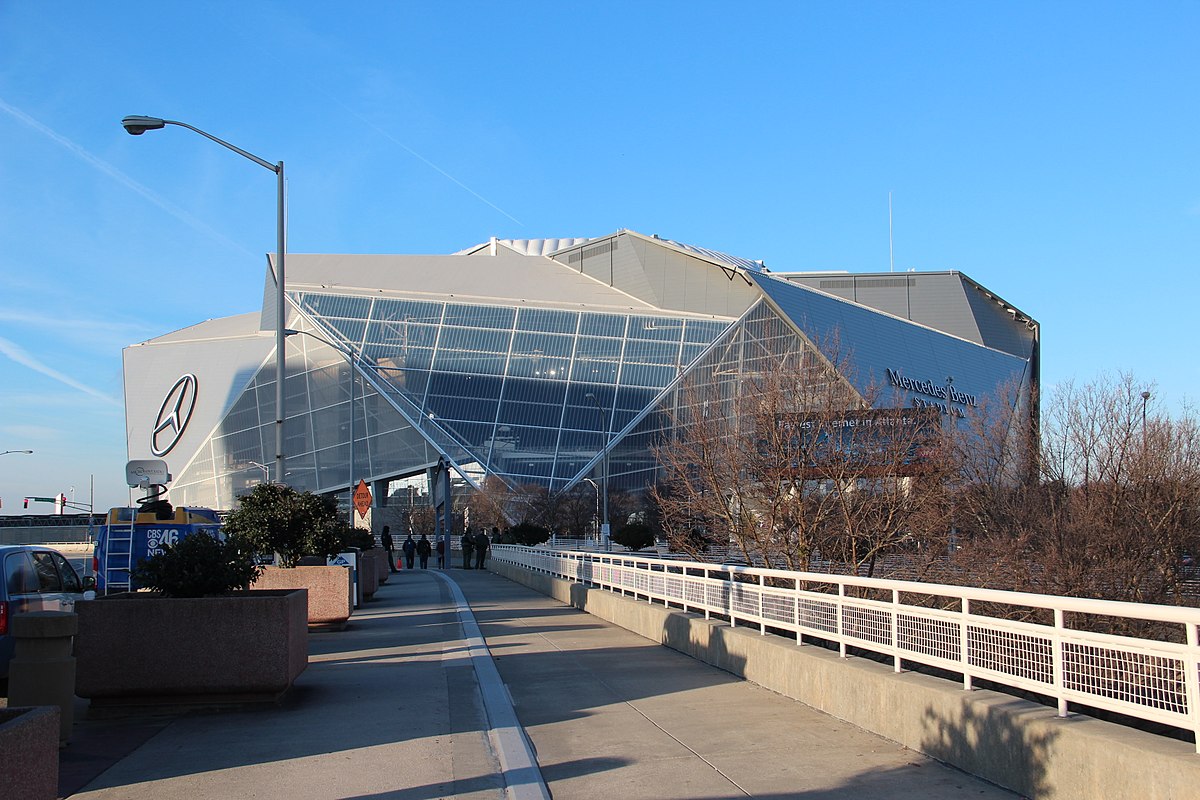Not every Super Bowl memory has to be a traumatic one for the city of Atlanta. After the disappointing 2017 Super Bowl loss against the Patriots, Atlanta is back in the heat of the Super Bowl. Yet, this time it’s as a host. With the Super Bowl in town, it will financially benefit Atlanta and put the city further into the spotlight.
Atlanta has hosted the Super Bowl two previous times, once in 1994 and in 2000. However, parts of Atlanta were not what they are now, and in 2000, the city was unfortunately struck by an ice storm.
Unlike the past two Super Bowls played in the Georgia Dome, this year Atlanta will host the 2019 Super Bowl in the new $1.5 billion Mercedes-Benz stadium. With a luxurious stadium and reasonable weather, Atlanta is looking for the third time to be a charm.
According to Dave Orrick of the Twin City Pioneer Press, when Minneapolis, Minnesota, hosted the 2018 Super Bowl, it grossed an additional $400 million. Aligning with its former host, The Metro Atlanta Chamber estimated that Atlanta will generate around $400 million as well.
The Super Bowl is said to primarily benefit the hospitality industry. Given an opportunity to show what the city has to offer, the restaurants, hotels and entertainment venues that will be flooded will have the potential for significant gains by simply increasing their reputational strength.
Along with tough sports losses, Atlanta is also well-known for its airport, the busiest in the world. On average, Hartsfield-Jackson handles around 270,000 passengers a day. For the Super Bowl, an extra 125,000 passengers are expected to infiltrate, with about 110,000 expected to leave the day after the game. The expected earnings coupled with the fact that the Super Bowl is seen as just a 10-day event, the temporary chaos should be worth it for the airport and its employees.
The $400 million projections are still heavily debated and often rejected by independent economists. On Jan. 25, Kennesaw State economics professor J. C. Bradbury led a symposium on the economic impact of the Super Bowl and said economic predictions can be overblown.
“A lot of times what you’re doing is displacing people who would have been there anyway,” Bradbury said. “When you look at hotels and you estimate how many people are coming to stay at the hotel, you assume the hotel is empty without having the Super Bowl.”
While the impact remains significant, the boost is expected to be lower than initially claimed. Brett Daniels, Atlanta Super Bowl Host Committee Chief Operating Officer, addressed the Atlanta Convention and Visitors’ Bureau Executive Committee on Jan. 24. He estimates $185 million to be a more realistic range.
Regardless of the exact amount of money, the Super Bowl will bring an enormous amount of business for stores, restaurants and hotels. Atlanta employees could see an increase in work hours and pay due to the influx of visitors, and the potential to make more could relieve some families of post-holiday spending stress, especially if they are federal works recovering from the shutdown.
For a time of the season that’s typically dull in Atlanta, this Super Bowl will provide a celebratory vibe — quite the opposite of the crushing effects that the 2017 Super Bowl loss had on the city. With the game coming to Atlanta, the city will profit financially and make its mark on the map again.


